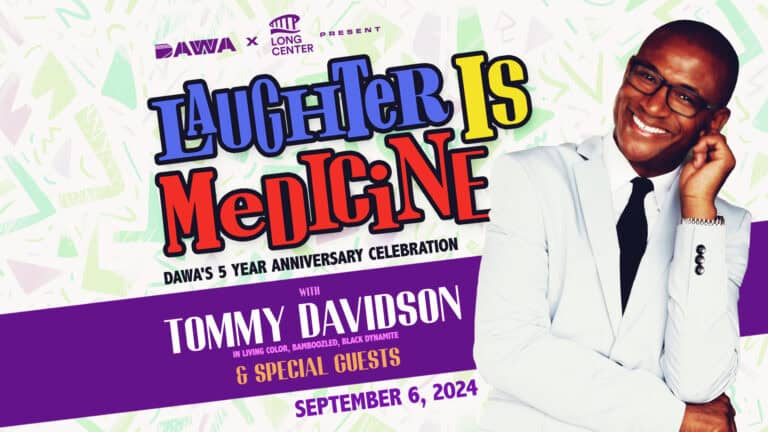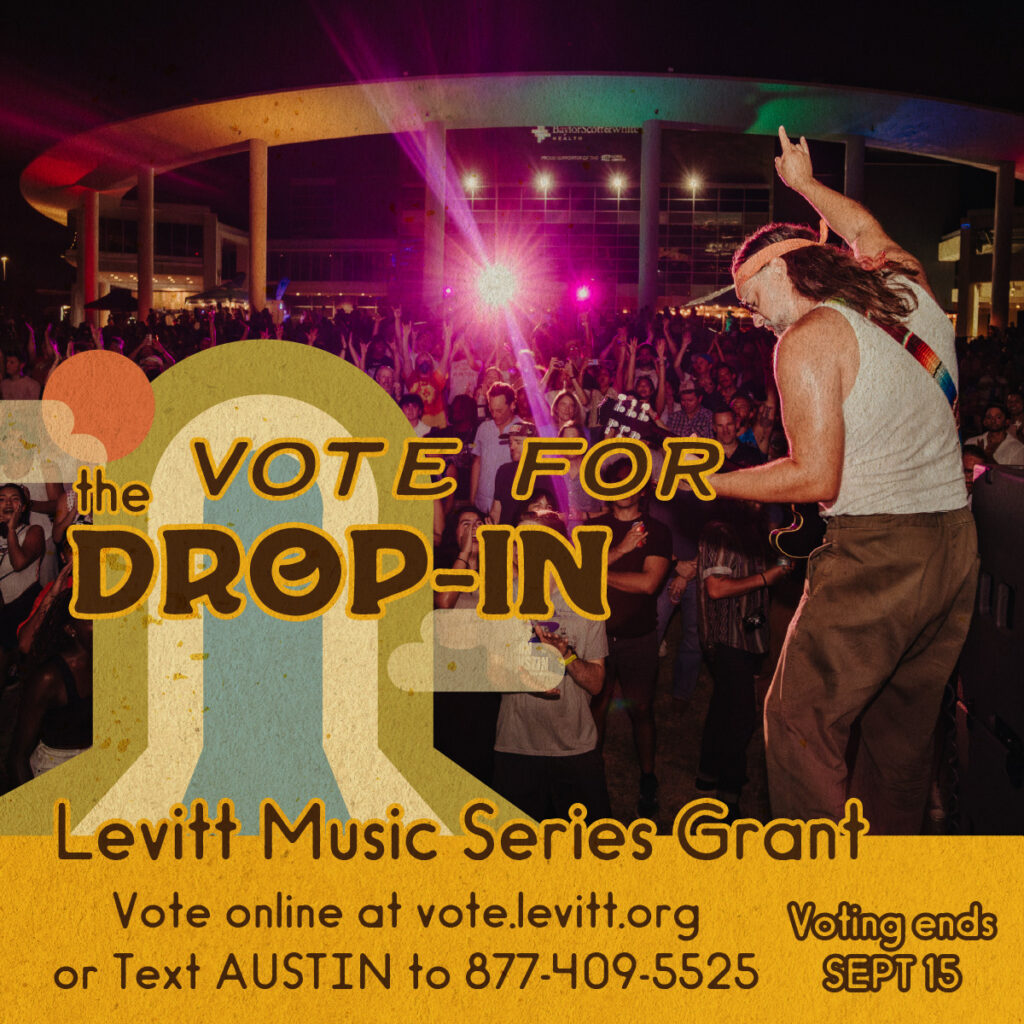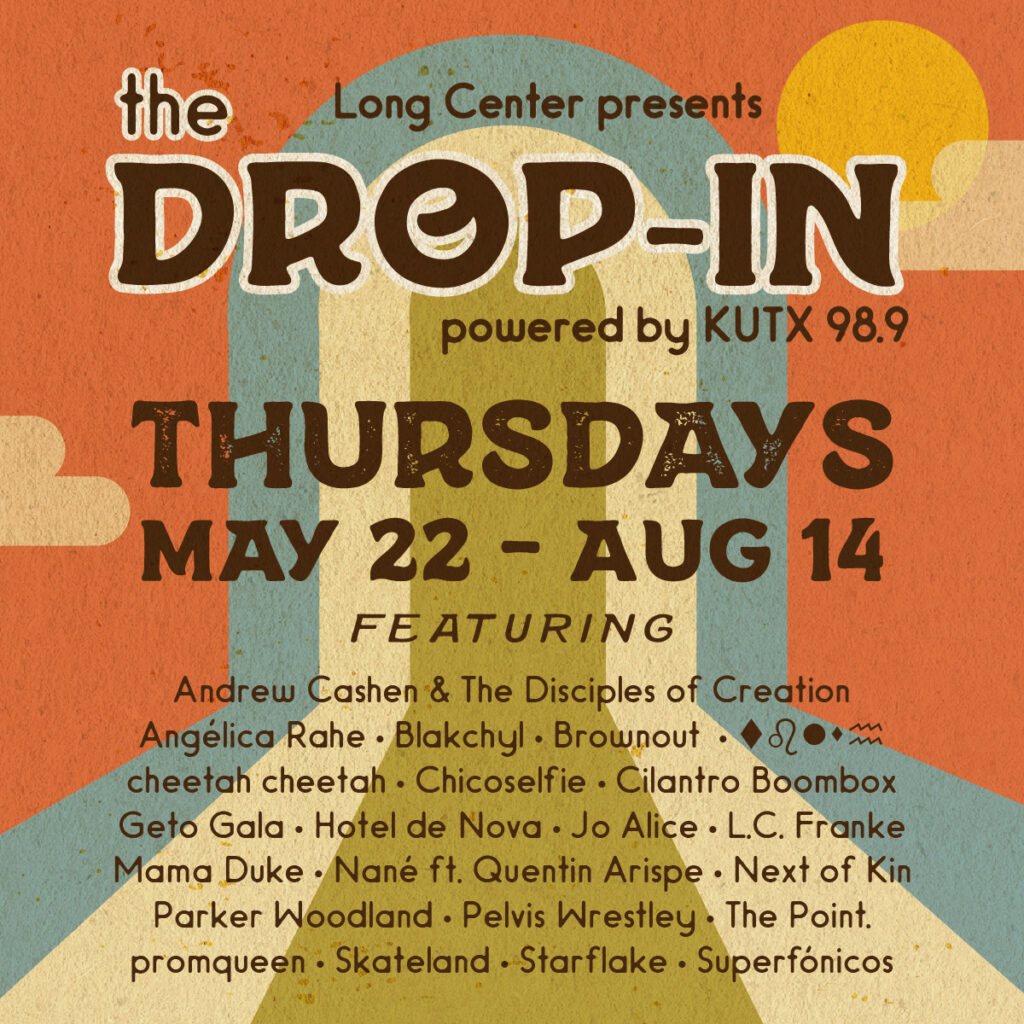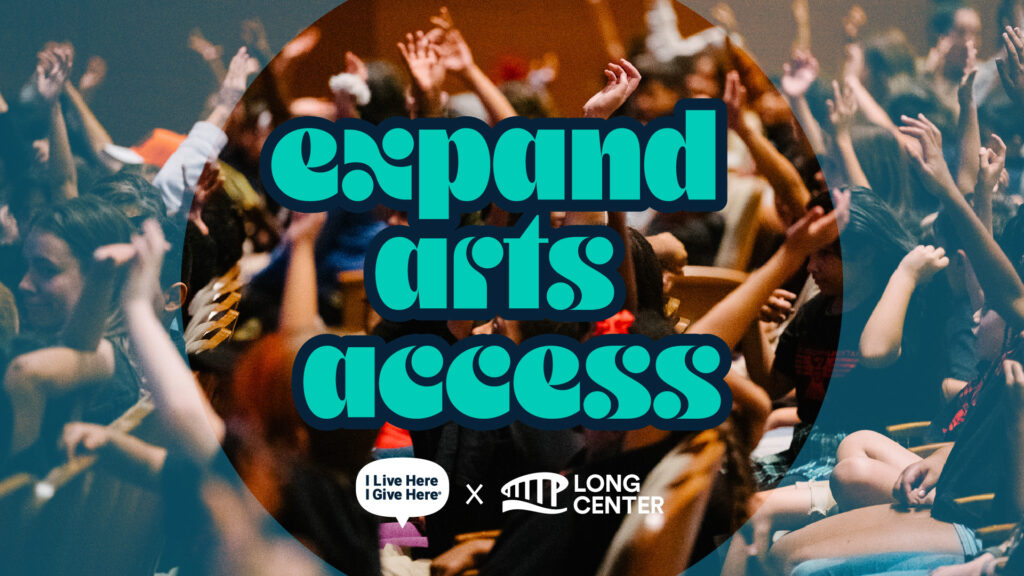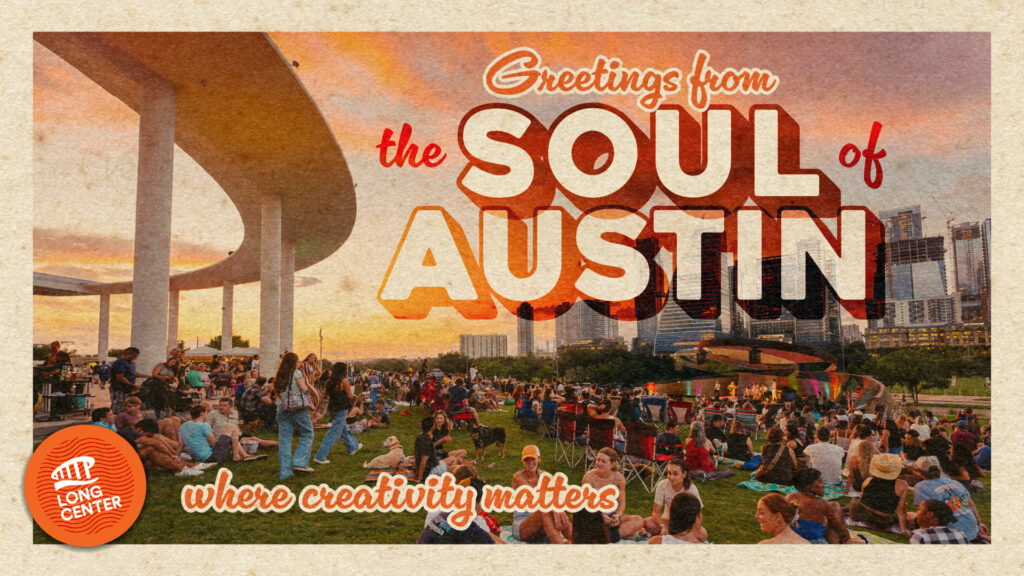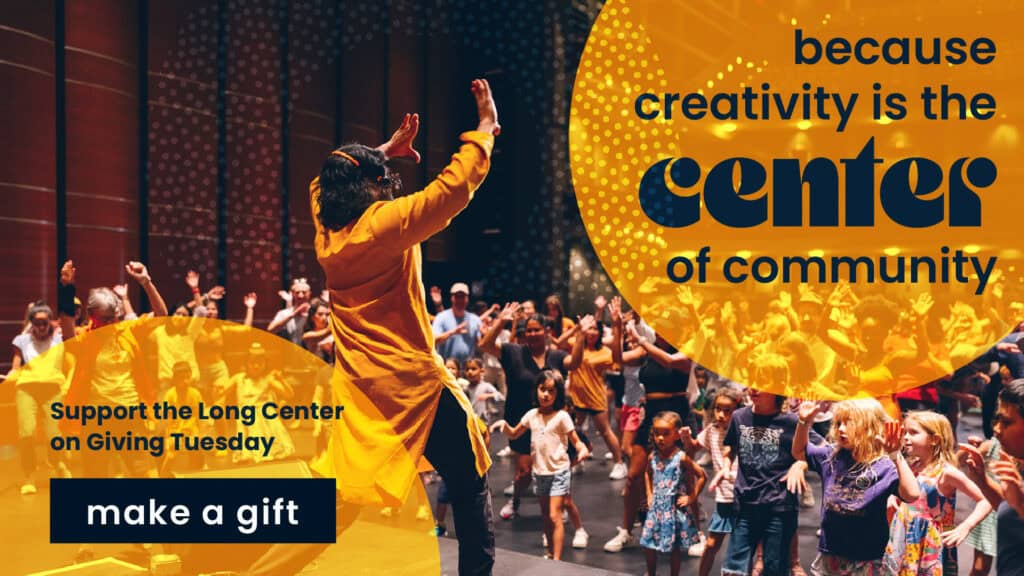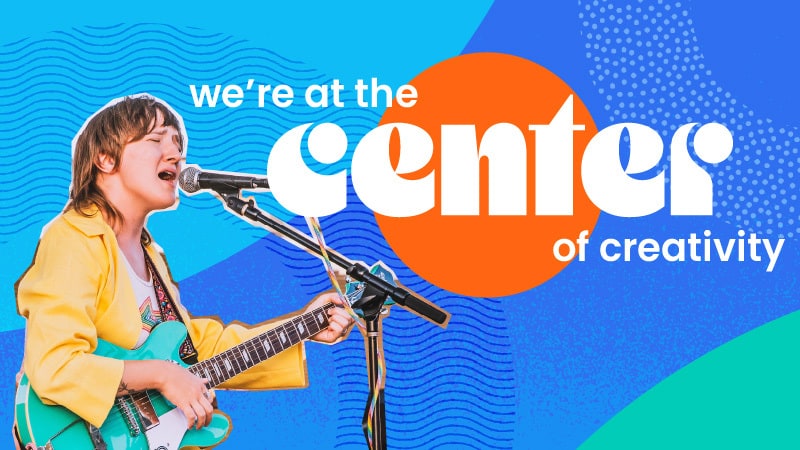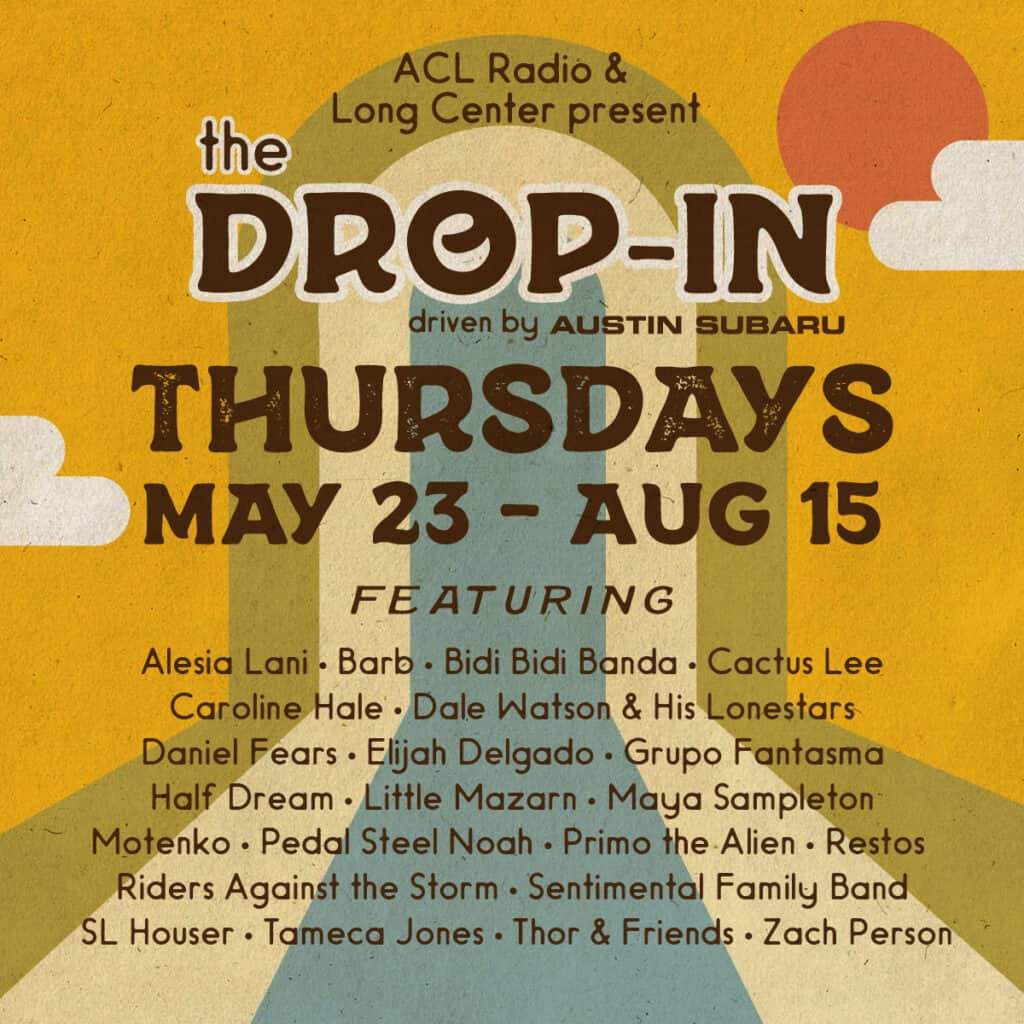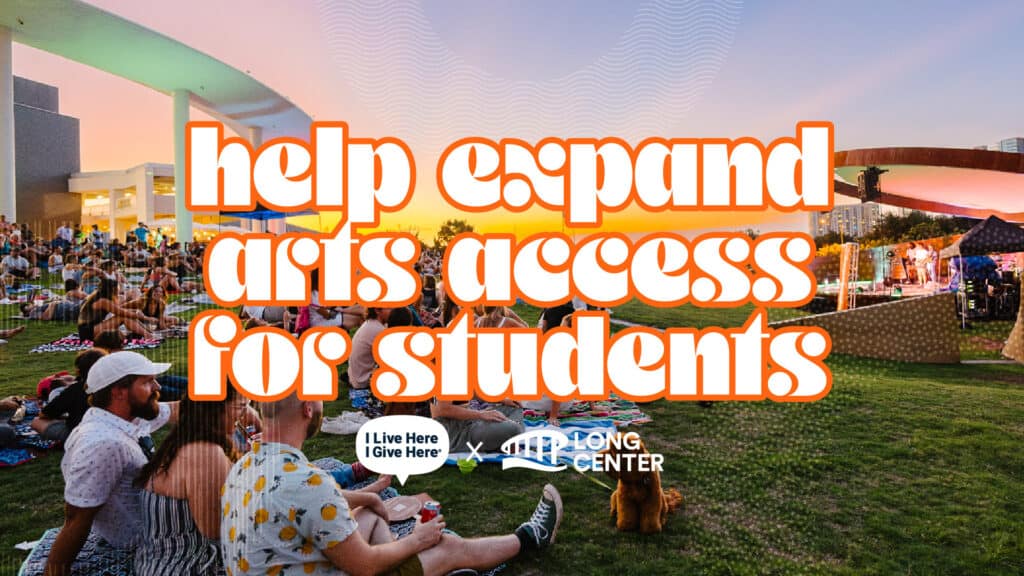Mid-Week Intermission Artist Edition: Jonathan ‘Chaka’ Mahone and DAWA
If you’ve been in Austin for a minute — or you’ve gone to The Drop-In or Blues on the Green this summer — you’re probably familiar with husband and wife duo Riders Against the Storm. (And if you’re not familiar with Chaka and Qi Dada, check them out ASAP.) What you may not know is the depth and breadth of Chaka’s creative and advocacy activity, so in this Mid-Week Intermission we’re digging deeper to learn about his non-profit DAWA, their upcoming five-year anniversary, and what “giving to the givers” really means.
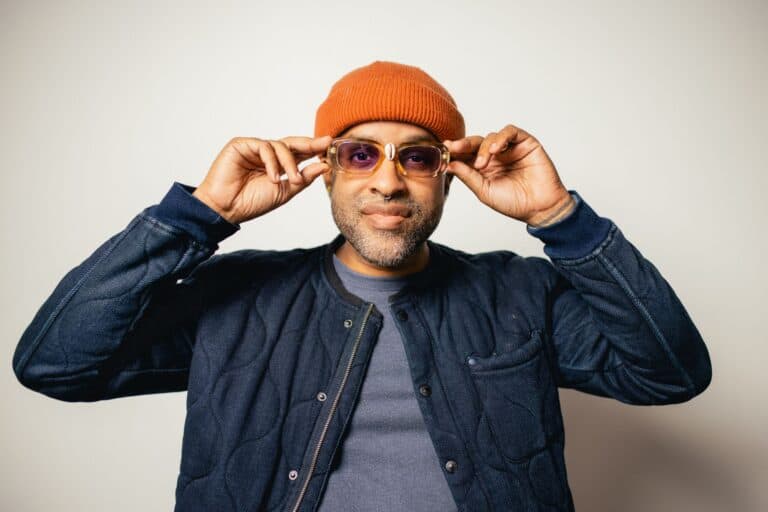
Meet Chaka and learn more about DAWA, Diversity Awareness & Wellness in Action
Long Center: Welcome to Mid-Week Intermission!
We usually ask people for a song to go with their interview — does anything come to mind?
Chaka: Everyday People — Arrested Development
LC: Some readers will know you from Riders Against the Storm, but can you tell us a little more about your background and what led you to create, advocate, and make music in Austin?
Chaka: I don’t disconnect music from advocacy. It’s my voice, and I use it to speak about things that are important to me, and those I care about. My journey in Austin music brought me into a lot of spaces that were completely ignorant to the lived experiences of BIPOC people in Austin. Yet, and still, they somehow talked as representative of ‘Austin music’ as a whole. This really disgusted me frequently. So, whenever I was in those spaces, I used my voice to inform about perspectives that were missing from their visions and decisions. A lot of times whatever I would say triggered people into fearing my presence, but there were always people in the room that listened, and I formed alliances with those people to create more opportunity.
LC: In addition to your creative work, what led you to form DAWA? Was it something you’d pondered for a long time or a specific event?
Chaka: I formed DAWA because there was a glaring need that most Austin music non-profits, and non-profits in general, were not addressing when it came to the struggles faced by BIPOC people. I tried going to a lot of these organizations with ideas (even joined a Board), but they weren’t ready to act in a responsive way to critical needs.
DAWA was created because I was frustrated, but not powerless to act. I just organized the resources that I had and started, with no intention of actually becoming a non-profit. The non-profit came about due to the communtiy response and feedback I received over time. It became something that I felt Austin really wanted, and I sought out a pathway to make it sustainable. We are still on that path today. Our 5 Year Anniversary is a celebration of our resilience and commitment to growing something vital for Austin’s BIPOC ‘community frontliners.’ We want DAWA to be a cultural institution that lasts well beyond my involvement or oversight.

LC: So that our readers know, DAWA’s full name is Diversity Awareness & Wellness in Action. Can you tell us more about DAWA’s mission and “giving to the givers?”
Chaka: Our theory of change is that when you give to those that play giving roles in our community, there is an amplifying effect that makes our entire community healthier and more vibrant. Those that care for and nurture us should be cared for. The givers need to receive. Unfortunately, their roles are not highly valued, so it’s harder and harder to be a teacher, social worker, creative, or healthcare provider in a city like Austin that is growing rapidly. Our mission is to celebrate, elevate, and empower their essential work through direct financial assistance and culturally relevant health-centered programming.
LC: From your perspective as a creative, how are art & storytelling powerful tools, alongside more typical ones, for investing in community health and well-being?
Chaka: Artists are storytellers. Unfortunately, for the most part, much of our cultural production does not benefit us. It is extracted and, generally, others profit from our brilliant visions and innovation. It doesn’t have to be like that. DAWA believes that investing economically in BIPOC community and culture holistically will build a more inclusive and beneficial space that has long-term impact.
I am an example of that. My gifts as a musician and visual artist birthed an entire organization, a physical space for community, and hundreds of jobs. My community’s investment in me had an amplifying effect that grew ideas like DAWA. It’s time for more investment. We are thankful for opportunities like the City of Austin’s Thrive Grant, which has given us a runway to build larger avenues to sustainability.
LC: You have a big five-year anniversary event for DAWA coming up at the Long Center in September (congrats!) — what does this milestone and opportunity for celebration mean to you and the DAWA community?
Chaka: This is a cultural moment of victory for Austin that we are claiming. As we plant our ‘Giving To The Givers’ flag, we are stating that, ‘we are here, and we aren’t going anywhere.’ It’s time for the essential work of BIPOC community frontliners to be centered as a part of the vision for generations to come. It’s going to be a city-wide celebration that marks DAWA’s next phase.
LC: One more teaser for our readers about your anniversary event — what can folks expect from Laughter is Medicine with Tommy Davidson? Any special guests or other hints you can leave us with?
Chaka: Tommy Davidson is a king of comedy. A legend! It’s going to be so amazing to have him commemorate this momentous occasion. Expect to laugh HARD for an incredible cause with thousands of people! Our goal is to raise $100,000 to be distributed via the DAWA Fund in November. Look for special guest announcements soon!
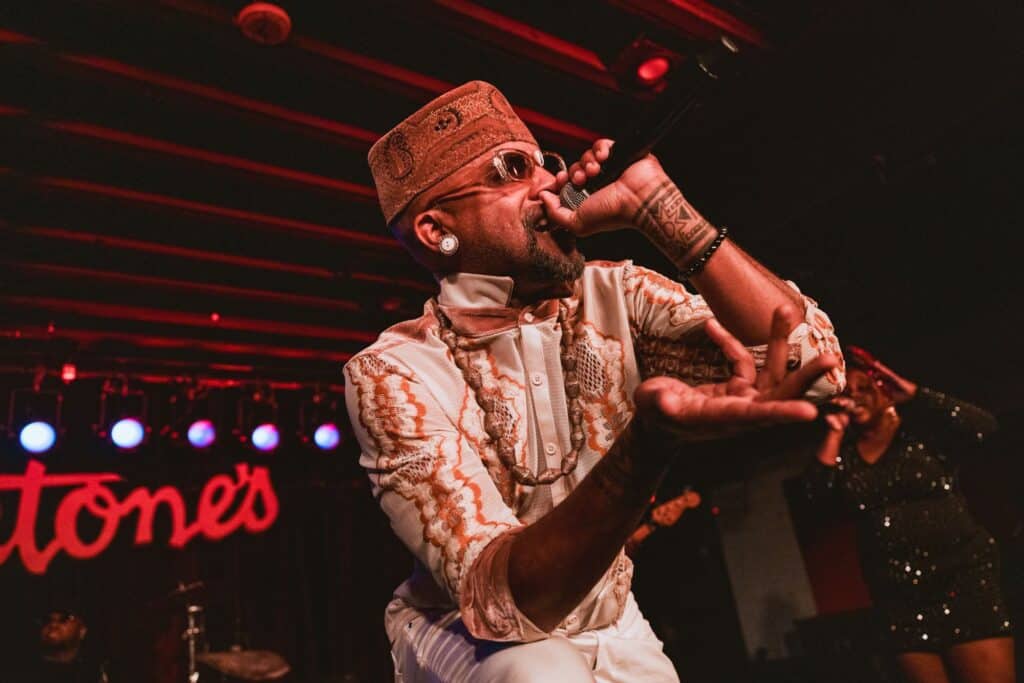
Thanks, Chaka!
The Long Center is super pumped to have DAWA in the house for their five-year anniversary event on September 6. Check it out below and follow @dawaheals for updates!

